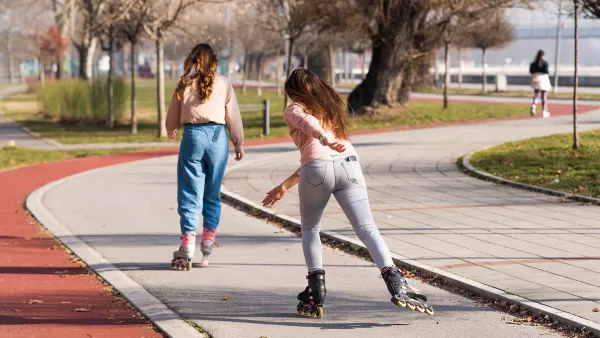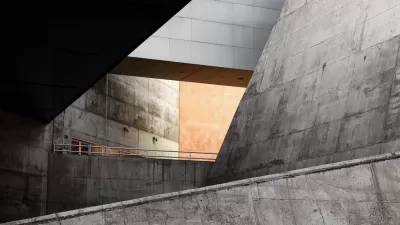With Cul-de-sac restrictions catching on in the South, one Arkansas town is beginning to make plans to create complete, compact and connected neighborhoods.
"Cul-de-sacs have long been an iconic feature of suburban life. Heralded as the safest neighborhood street, culde-sacs are still a big selling point for many home buyers.
But in recent years, the popular fixture of subdivision development has gained criticism from urban planners and has even been banned in some cities.
Leif Olson, long range planner for the city of Fayetteville, said cities have been debating the value of such streets for the past 10 years.
"The unfortunate thing about culde-sac development is that it doesn't lend itself to connecting with anything else. Instead it's creating an isolated enclave of like uses, and it doesn't allow for traffic flow to penetrate through the neighborhood," Olson said."
"Olson said he doesn't know how the concept will go over in Fayetteville.
"I think you have people that either really don't like them or really do," he said. "From a planning perspective, it's about creating complete, compact and connected neighborhoods, which is a goal of 2025."
One of the main arguments for cul-de-sacs is that they reduce through-traffic in residential areas.
Alderman Bobby Ferrell said he already receives calls and e-mails from citizens concerned about traffic cutting through their neighborhoods. If the city establishes connectivity in its neighborhoods, he said, the next step is going to be the neighbors calling and asking for a speed barrier.
Some city planners argue however that cul-de-sacs cause increased traffic on the streets that aren't cul-de-sacs in the neighborhood. When there is one way in and one way out, Olson said, all of the traffic comes out on one street, creating a choke point."
Thanks to Leif Olson
FULL STORY: End of the road : Cul-de-sac : American dream or planning nightmare?

Planetizen Federal Action Tracker
A weekly monitor of how Trump’s orders and actions are impacting planners and planning in America.

Maui's Vacation Rental Debate Turns Ugly
Verbal attacks, misinformation campaigns and fistfights plague a high-stakes debate to convert thousands of vacation rentals into long-term housing.

San Francisco Suspends Traffic Calming Amidst Record Deaths
Citing “a challenging fiscal landscape,” the city will cease the program on the heels of 42 traffic deaths, including 24 pedestrians.

Defunct Pittsburgh Power Plant to Become Residential Tower
A decommissioned steam heat plant will be redeveloped into almost 100 affordable housing units.

Trump Prompts Restructuring of Transportation Research Board in “Unprecedented Overreach”
The TRB has eliminated more than half of its committees including those focused on climate, equity, and cities.

Amtrak Rolls Out New Orleans to Alabama “Mardi Gras” Train
The new service will operate morning and evening departures between Mobile and New Orleans.
Urban Design for Planners 1: Software Tools
This six-course series explores essential urban design concepts using open source software and equips planners with the tools they need to participate fully in the urban design process.
Planning for Universal Design
Learn the tools for implementing Universal Design in planning regulations.
Heyer Gruel & Associates PA
JM Goldson LLC
Custer County Colorado
City of Camden Redevelopment Agency
City of Astoria
Transportation Research & Education Center (TREC) at Portland State University
Jefferson Parish Government
Camden Redevelopment Agency
City of Claremont





























